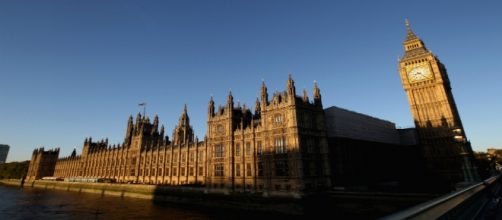It is well known that situations change very quickly in politics. What is one day may not be the next. And this is precisely where we are with theresa May and her election campaign. What do you mean, you may say? In exploring the issue of where we are currently at, certain questions do need to be asked. First of all, what has gone wrong for the Conservatives? And second of all, where are we right now?
Context
In exploring the current situation, let me explain. On the 18th April Theresa May announced that she wanted to hold a snap election, which was to take place on the 8th June.
It was called and deemed necessary Due to the current challenges the country was facing. This in particular was Brexit. Theresa May was reported in the Guardian newspaper as saying that an election was necessary "to guarantee certainty for the years ahead". It was entirely possible that the PM may have been swayed by the numbers that would have been presented to her. The Independent newspaper stated on the 15th April that the Conservatives were, at the time, 21 points ahead of Labour according to a poll that was taken. It gave the party the "greatest lead while in government" since 1983. This same poll, conducted by ComRes, gave the 'Tories' 46 per cent of vote with Labour being given 25 per cent.
It was therefore seen as a smart idea in calling the snap election.
The Conservatives
This leads us to the first question; what has gone wrong for the Conservatives? The problem lies in two parts; in the Conservatives themselves and Labour. First of all the Conservatives. Whereas they had a commanding lead of 21 points six weeks ago, that number is no more. More accurate projections place the 'Tories' just three points ahead of Labour. Figures show that with the Conservatives on 42, Labour are on 39. So where has it gone wrong for Theresa May and her party? Quite simply, the election campaign. At the start Theresa May was most certainly on the offensive by targeting marginal constituencies. It was seen that all areas of the country were in play.
And May herself continued to use sound bites to promote her party. The "strong and stable" as the Mirror newspaper noted of the Conservatives and the 'coalition of chaos' to describe the Labour Party. But now it has all changed and as the Mirror stated, May has gone from "strong and stable" to "weak and wobbly". In honesty, there was one major failing brought upon by Theresa May and her party; namely the 'dementia tax' (in her manifesto) as it has been called. What is was, was a plan to reform social care. The Business Insider noted that under the plan, "anyone who receives care in their own home will have to pay for it through the value of their home once they have passed away". Now, although the policy was criticised across the border, what was even more controversial was May's decision to reverse the manifesto pledge.
This clearly was a sign of the pressure that was mounting on her. It has had a strong, and I must say negative, effect. Whilst we were expecting a clear landslide, it is clear that that, now, will not be the case.
Labour
The second part concerns the Labour party. The Express newspaper featured a poll that predicted that Labour "could" win 257 seats at the election in June. This would be 20 more than it currently has. Now although that will not be enough for an overall victory, it does suggest that the tide is turning. And what is this down to? Mainly, their manifesto. Whilst the Conservatives were floundering, the Labour Party's manifesto was clear and concise. It was also, for the most part, popular.
The desire to renationalise the railways and the Royal Mail as well as to provide "free school meals" as the BBC noted has resonated well with the public. It must be also noted that people are changing my views on Jeremy Corbyn. He has even become mildly popular. He is widely viewed as the underdog and the voice of those who feel disenchanted with the current establishment.
And now?
And now to my second question: where are we right now? It is highly likely and probable that Theresa May will be prime minister by the 9th June. But it is also the case that she should be miles ahead at this stage. The fact that it is not is entirely her (and her party's) fault. May has let the opposition back into the game; a game that she was winning comfortably before her manifesto release. Although Theresa May will win the election, she may not get what she set out to achieve in the first place; a healthy majority to face the uncertainty that lies ahead.

